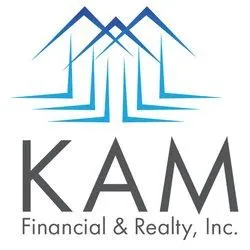
Mortgage Lenders in California: Your Complete Guide to Home Financing
When it comes to finding the best mortgage lenders in California, the options can be overwhelming, given the state's dynamic real estate market and diverse population. The best lender for you will depend on your financial situation, the type of property you're buying, and the loan programs you're eligible for. Whether you're a first-time homebuyer or looking to refinance, choosing a lender with the right mortgage products, competitive rates, and excellent customer service is crucial.
1. What are the best mortgage lenders in California?

Some of the top mortgage lenders in California specialize in government-backed loans like FHA, VA, or USDA, while others focus on conventional and jumbo loans. It's important to explore all available options, as different lenders offer different benefits. You can start by researching well-established names in the industry or consider working with a local lender who understands the nuances of the California housing market.
A mortgage broker can also help you compare various lenders and find the most suitable loan for your needs. For example, if you're a first-time buyer, you might want to consider an FHA loan or a bank statement purchase if you have a non-traditional income stream. It's also helpful to check out tools like our loan calendar to track your progress through the mortgage process.
2. How do mortgage lenders in California determine interest rates?
Mortgage lenders in California determine interest rates based on a variety of factors, including your credit score, the loan amount, the type of loan, and your financial history. California’s unique housing market, with its high property values and varying regional demands, can also influence interest rates.
Key factors that affect your mortgage rate include:
Credit Score: The higher your credit score, the lower your interest rate will generally be. Lenders view borrowers with higher credit scores as less risky, which allows them to offer more competitive rates.
Loan Type: Conventional loans often have lower rates than government-backed loans like FHA or USDA, though these may be more accessible for buyers with lower credit scores or smaller down payments.
Loan Amount and Term: Larger loan amounts and longer loan terms (e.g., 30-year fixed-rate mortgages) can have different rates than smaller loans or shorter-term loans.
Down Payment: A larger down payment can help lower your interest rate by reducing the loan-to-value (LTV) ratio, making the loan less risky for the lender.
Debt-to-Income Ratio (DTI): Lenders will also assess your DTI, which compares your monthly debt obligations to your monthly income. A lower DTI is favorable for securing a lower interest rate.
If you're looking for more flexible financing options, you may want to explore the 203k Refinance or HomeStyle Refinance programs, which can help you secure funds for home improvements in addition to your mortgage.
3. What types of loans do mortgage lenders in California offer?
Mortgage lenders in California offer a wide range of loan products, each catering to different borrower needs. Some of the most common types of loans include:
Conventional Loans: These are non-government-backed loans, typically offering competitive interest rates and flexible terms. They may require a higher credit score and a larger down payment but often come with fewer restrictions.
FHA Loans: Backed by the Federal Housing Administration, FHA loans are designed for first-time buyers or those with less-than-perfect credit. These loans often require a lower down payment (as low as 3.5%).
VA Loans: Available to military veterans, active-duty service members, and their families, VA loans offer 100% financing, meaning no down payment is required. These loans also typically have lower interest rates and do not require private mortgage insurance (PMI).
USDA Loans: These are designed for buyers in rural areas who meet specific income and credit requirements. USDA loans offer no down payment and competitive rates.
Jumbo Loans: For high-value properties that exceed the conforming loan limit, jumbo loans allow borrowers to purchase luxury homes or properties in high-demand areas like California.
If you're interested in a more specialized loan option, consider bank statement loans or no-income verification loans, which are perfect for self-employed individuals or those with unconventional financial backgrounds.
4. How can I compare mortgage lenders in California?
Comparing mortgage lenders in California is essential to ensure you're getting the best deal for your home financing needs. Here are some tips to help you evaluate different lenders:
Interest Rates and Fees: Compare the interest rates offered by different lenders. Be sure to ask about any fees or costs associated with the loan, including origination fees, closing costs, and mortgage insurance.
Loan Products: Check if the lender offers the type of loan you're looking for, whether it’s an FHA loan, VA loan, or conventional loan. If you're a first-time homebuyer, you may need a lender who specializes in DPA (Down Payment Assistance).
Customer Service: Read reviews and testimonials to gauge the lender's reputation. A lender with good customer service will guide you through the application process and ensure that your questions are answered in a timely manner.
Approval Process: Ask about the lender’s approval process, including how long it typically takes to secure a pre-approval letter and close the loan.
Online Tools: Many lenders offer online tools that allow you to get pre-approved quickly or calculate mortgage payments. Utilize these tools to get a sense of what you might be eligible for.
Additionally, if you're considering refinancing, look into options like conventional refinance or reverse refinance loans, which may offer better rates or terms.
5. What are the common mistakes to avoid when working with mortgage lenders in California?

When working with mortgage lenders in California, avoiding common mistakes can save you time, money, and stress. Here are some of the most common errors to watch out for:
Not Shopping Around: Many homebuyers make the mistake of accepting the first mortgage offer they receive. It's essential to compare multiple lenders to find the best rate and loan terms.
Not Understanding the Costs: Some borrowers fail to factor in closing costs, insurance, and taxes when calculating their total mortgage payment. Be sure to account for all costs before committing to a loan.
Overestimating Affordability: Just because a lender pre-approves you for a certain loan amount doesn’t mean you should borrow that much. Stick to a budget that allows for comfortable monthly payments.
Ignoring Your Credit Score: Your credit score significantly impacts the mortgage rate you receive. Make sure your credit is in good shape before applying for a loan, as a higher score can help you secure a better rate.
For borrowers seeking to improve their financial situation, exploring options like the 203k Purchase program might allow you to make home improvements while financing the purchase of your home.
6. Can I get a mortgage with bad credit in California?
It’s possible to get a mortgage with bad credit in California, though the options may be more limited and come with higher interest rates. Many mortgage lenders offer loans to borrowers with less-than-perfect credit, especially through government-backed programs like FHA and VA loans. If your credit score is low, it’s a good idea to work with a lender who specializes in these types of loans.
Other options include bank statement purchase loans, which do not rely as heavily on your credit score but rather on your income, or no-income verification loans, which can be helpful for self-employed individuals or borrowers with unconventional income sources.
7. How does the mortgage approval process work in California?
The mortgage approval process in California is similar to that in other states, but there are some unique factors to consider, given the state's diverse housing market. The typical mortgage approval process includes the following steps:
Pre-Qualification: The first step is to get pre-qualified for a mortgage, which involves providing basic financial information to a lender.
Pre-Approval: Once pre-qualified, you can get pre-approved, which involves submitting more detailed financial documents such as tax returns, pay stubs, and credit reports.
Appraisal and Inspection: The lender will order an appraisal to determine the value of the property and may require a home inspection to ensure it's in good condition.
Final Approval: Once the appraisal and inspection are complete, the lender will review your application and either approve or deny your mortgage.
Closing: If approved, you'll proceed to closing, where you'll sign the loan documents, pay any required closing costs, and officially become a homeowner.
For a smoother process, consider using tools like our loan calendar to track important dates and milestones.
8. What are the advantages of working with mortgage lenders in California?
Working with mortgage lenders in California offers several advantages, including:
Access to Diverse Loan Products: California lenders offer a wide variety of mortgage products, including conventional loans, FHA, VA, USDA, and jumbo loans, which allows you to find the right fit for your financial situation.
Local Knowledge: California-based lenders have deep knowledge of the state’s real estate market, helping them offer tailored advice and solutions for specific regional challenges.
Specialized Programs: Many California lenders offer programs specifically designed for first-time homebuyers or those looking to purchase in certain areas, such as rural regions covered by USDA loans.
Streamlined Process: Many lenders in California offer online tools and support to streamline the mortgage application process, saving you time and effort.
9. How long does it take to close on a mortgage with a lender in California?
The time it takes to close on a mortgage with a lender in California can vary, but on average, it takes 30 to 45 days from the time of application to closing. However, this timeline can be influenced by several factors, including the complexity of your financial situation, the type of loan, and the responsiveness of all parties involved.
If you’re looking to close quickly, it’s helpful to work with a lender who offers expedited processing and provides clear timelines for each step of the approval process.
10. How can I refinance my mortgage with a lender in California?
Refinancing with a lender in California allows you to change the terms of your existing mortgage, potentially lowering your interest rate, shortening your loan term, or taking cash out for home improvements. To refinance, you’ll need to go through a similar process as applying for a new mortgage, which includes providing updated financial documents, undergoing a credit check, and having your property appraised.
For more information on refinancing options, including conventional refinance and reverse refinance loans, consult with a mortgage lender to see which product suits your goals.


